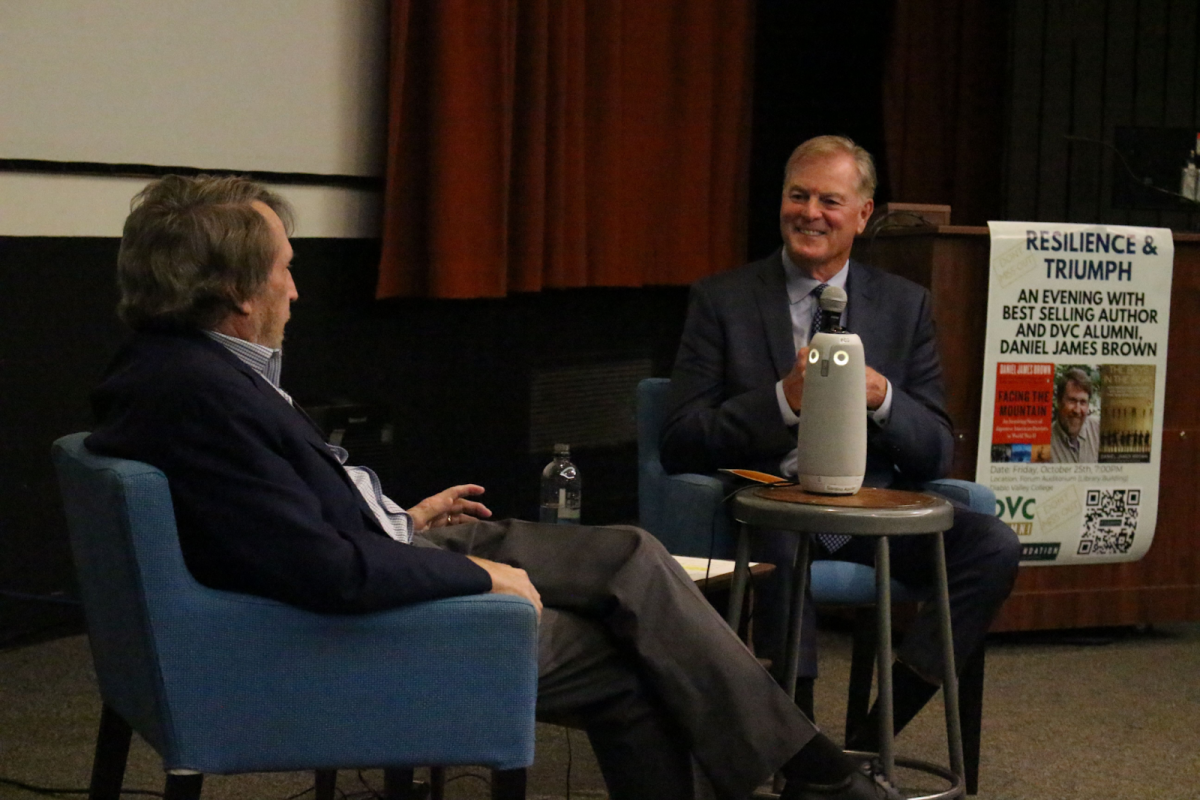The 5 percent discount given to students with Associated Students of DVC stickers may become the latest casualty of a district finding that the DVC bookstore has been losing money for five of the last six years.
Bookstore manager Bill Foster said the sticker discount is one of many cost-cutting measures under discussion, although it is not at the top of the list.
“That would be our last option,” Foster said. “I think we’re going to solve our problem before it gets to that.”
Bill Oye, dean of student life, said he opposes the sticker discount disappearing altogether.
“We want to keep students loyal to the bookstore,” he said. “My argument is, if you take away that discount entirely, we’re going to lose that loyalty.”
But possible elimination of the sticker discount is just the latest issue involving students to surface as a result of the bookstore’s newly discovered losses.
By law, any profits made by on-campus bookstores must be used to benefit students. But zero profit – never mind a six-figure deficit – means no money for student needs.
“It’s been kind of a shock to us,” said Oye, whose office relies on about $150,000 in bookstore profits each year to help pay for student government and club activities, student awards, graduation activities, “college success” workshops, staff positions in the Student Life office, and more.
So far, his office has used reserves to pay expenses normally covered by bookstore profits, but those reserves are now nearly gone, Oye said.
Foster, Oye and Chris Leivas, DVC’s vice president of finance, met Monday to brainstorm alternative ways to fund student life and will do so again on May 18.
Foster said he did not learn about the red ink until last November, when he was told the bookstore had lost $314,355 in the 2007-2008 school year. Until then, he said, he had never been told the bookstore was operating at a loss.
But a reshuffling of positions at the district office resulted in a new person looking at the bookstore’s books and redoing the numbers, Foster said.
“[It was then] that we were told we weren’t making money,” he said.
The district audit showed the bookstore has been operating at a loss for five of the last six years, Foster said.
But since the district ran the bookstore until the end of the 2006-2007 school year, the college is only responsible for losses since then, he said.
Contributing to the red ink was a $1 million outlay for fixtures, cash registers, file cabinets and desks when the bookstore moved into its new quarters on the opposite side of the Main Quad in 2007, Foster said.
The bookstore will have paid off that expense at the rate of $200,000 a year in another three years, said Leivas, DVC’s vice president of finance.
Foster said he immediately began making changes after learning the news last semester, including cutting back on labor costs and eliminating the faculty discount received on purchases.
By the end of the school year, he said he expects to turn a $100,000 profit to apply towards the $314,364 in red ink.












































































